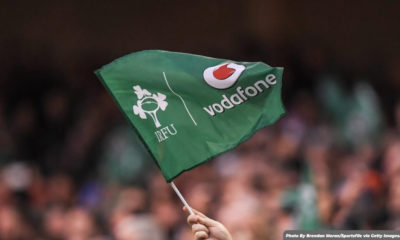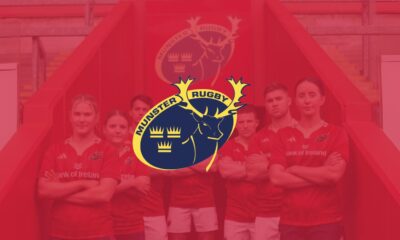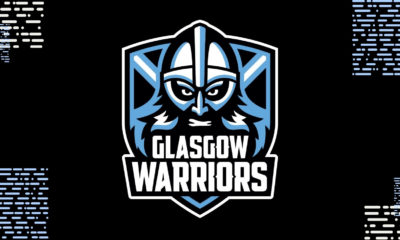Rugby World Cup
What went wrong with Ireland (and what they can do to fix it)
Peter Lockhart from UlsterRugbyLad takes a look at Ireland’s RWC campaign.
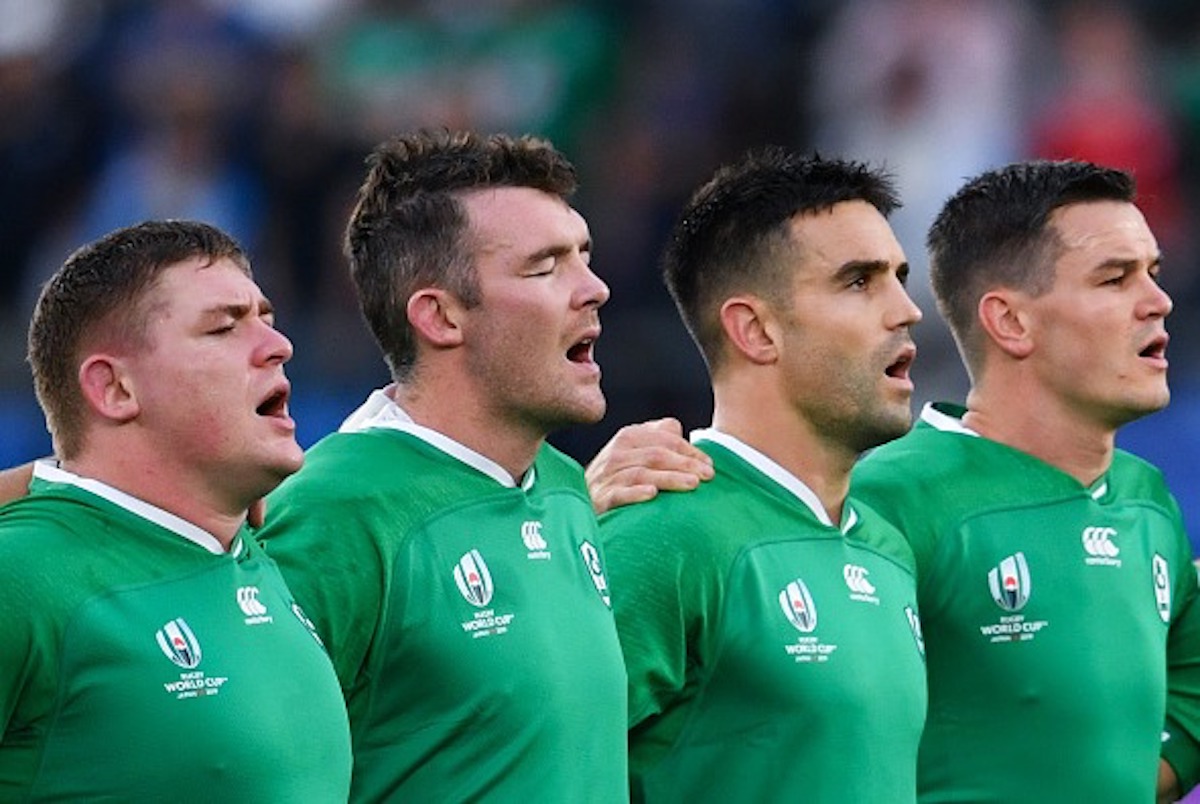
IF YOU CAN MEET WITH TRIUMPH AND DISASTER AND TREAT THOSE TWO IMPOSTERS JUST THE SAME…
Schmidt attributes Ireland’s World Cup demise to the pressure of expectation which, he says, became a “self-consuming monster”.
In the last couple of years Irish rugby has seen it all – the dizzying highs, the terrifying lows, the creamy middles.
Before the World Cup, I was convinced Joe Schmidt had a genius plan: turn in a series of poor performances in the 6 Nations then unleash the real Ireland (who had won the Grand Slam and beaten the All Blacks in Dublin only last year) on their unsuspecting opponents in the World Cup.
There was a growing anticipation towards the Quarter final – Ireland’s customary point of World Cup exit – to the point that many fans and pundits quietly believed we might just edge it against the All Blacks. *SPOILER* That didn’t happen.
It’s the hope that kills you.
Ireland’s World Cup defeat was embarrassingly emphatic. However, reports of the death of Irish rugby have been greatly exaggerated.
With the departure of Joe Schmidt, it is the end of an era of unprecedented success for Ireland. By the end of his tenure, however, it was obvious Ireland had peaked too early.
Arguably, however, the rugby infrastructure and players exist in Ireland to allow us to once again compete with the best teams in the world.
An overhaul is necessary, and it is worth reflecting on some of the things that went wrong for Ireland at this World Cup and, more importantly, what they can do to fix it.
1. Defending the Indefensible
In the sequel to the ‘Brighton Miracle’ – Japan’s dramatic win against South Africa at the last World Cup – Ireland’s ‘Shizuoka de-bagging’ at the hands of the Brave Blossoms is evidence of Ireland’s inability to adapt.
Ireland attempted to impose their rigid defensive structure on the hosts, but Japan stubbornly refused to follow the script.
Ireland like to defend the 12 channel. The Irish defensive line comes ‘up and in’, with the 13 generally coming up out of the line to funnel teams into a stacked midfield and limit the opposition’s width. That’s the theory.
Japan, however, insisted in throwing a spanner in the works. To open-up space, Japan’s first receiver would pass to an inside runner to punch holes and occupy Ireland’s back row. They would do this a couple of times to keep Ireland guessing and splinter the Irish defence. This, in combination with Japan’s unpredictable attack and ability to keep the ball alive, meant that Ireland’s rigid defensive structure had no chance.
South Africa had done their homework before facing Japan and deployed Faf de Klerk to follow the ball in defence and prevent the pesky inside pass from the Japanese first receiver, which he did to great effect.
In fairness to Ireland, the All Blacks were nearly impossible to defend against. The speed of their ruck ball was unbelievable. They would generally draw in defenders with three quick rucks, forcing Ireland’s defence to wrap around and then spread the ball into the wider channels. The only way to counteract this is to attempt to slow down their ruck ball which is, of course, easier said than done.
2. Dare you to move
What is the difference between Ireland’s attack now and when they were at their peak?
Movement.
With Ireland’s attack it is always blindingly obvious who the ball is going to. It’s slow, deliberate and static. Presumably, this is to remove risk. The idea is to trundle the ball up the pitch, back and forth, never going too wide and never doing anything silly. Basically, recycle the ball through endless phases to wear teams down.
This only works if, 1) players can reliably catch the ball and, 2) Ireland are actually moving forward and creating point scoring opportunities.
At their peak, Ireland would have a ‘pod’ of three runners moving, ready to receive the ball. This makes it very difficult for the opposition to anticipate what’s happening and organize their defence accordingly.
Ireland would then either give the ball to a member of the pod or shift the ball in behind the pod and spread it out to the backs. Either way, it was less predictable, conservative and, somehow, less error ridden.
Now, the pods are static, it is obvious who the ball is going to, and the opposition line up to smash the ball carrier. Clearly, against good teams this doesn’t work. Cian Healy, for example, carried the ball a grand total of 0 metres against the All Blacks. At the very least, Ireland’s pods need to move and learn to shift the point of the attack to keep the opposition guessing. Ireland have no shortage of fantastic ball carriers – they must be allowed to operate with some degree of dynamism.
In terms of Ireland’s backline, Schmidt limits the level of creativity and invention allowed. With one exception – Jonny Sexton. When Sexton is not in form, Ireland do not play well. Sadly, there is no obvious candidate to take his place (Ulster’s Michael Lowry will not be ready for a couple of years).
There is a lack of effective strike runners in the Ireland squad – players who are capable of picking a really good line and taking the ball off the first receiver at pace. Tommy Bowe in his prime, for example. Stockdale is undoubtedly talented, but he appears to be limited to attacking in the outside channels. Larmour and/or Carberry must now be given license to attack from deep and give Ireland the attacking flair they have been lacking.
3. The Rise of the Offload
The tackle rules have, and will continue to, fundamentally change the game of rugby.
For better or worse, it seems inevitable that World Rugby will limit tackles to waist-height. The way the game is refereed we are already moving in that direction.
Choke tackles – wrapping the player and the ball – and will become increasingly difficult. The type of bone-crunching tackles that feature in YouTube compilations will become a thing of the past.
Offloading will become an increasingly important core skill. Ireland have among the lowest number of offloads of any team in World Rugby and they must get used to playing the ball out of a tackle.
In contrast, Japan demonstrated that the offload can be used to unlock defences to great effect.
Schmidt picked his team based on players who would carry out his instructions to the letter. This meant there was no room for the likes of Stu McCloskey who – for all of his perceived failings – is a master of the half-break offload.
Is McCloskey Ireland’s answer at centre? No, probably not. However, Ireland will have to adapt and find players who have the necessary skill-set for the rapidly changing modern game in which the off-load will be king. With no shortage of blatant Ulster bias, I would humbly suggest that Ulster’s James Hume will fit the bill in the next couple of seasons.
4. Loyalty Over Royalty
It’s hard to argue with Schmidt’s unwavering loyalty to his trusted lieutenants. It’s a good quality in a person, but whether it’s appropriate in the ruthless world of professional sport is another question.
Schmidt sends a clear directive to his players and, understandably, he picks the ones who carry out his instructions to the letter. Indeed, this extends to selecting players who are out of form or are not entirely fit. This type of loyalty ultimately cost Ireland.
For example, Peter O’Mahoney was nowhere near his best at this tournament. The in-form Rhys Ruddock was perhaps a better option but was overlooked in favour of O’Mahoney’s ‘big-game experience’. Kilcoyne, Conway and Farrell will also feel they were not given enough of a chance.
Before Ireland faced the All-Blacks the narrative had revolved around a seasoned Irish team seeking to expose the youth and possible vulnerability of New Zealand’s young brigade of George Bridge, Anton Lienert Brown and Jack Goodhue.
“Experience is a funny thing, isn’t it?” Hansen said with a small smile after they had just dismantled Ireland.
“I’m not being disrespectful here in saying that, but Ireland’s experience was not to win. And we have the guys who actually had experience of winning. And that’s why you’ve got to be careful when you start talking about experience.”
Hansen demonstrates ruthlessness and pragmatism. For example, leaving Owen Franks at home, shifting Beauden Barrett to full-back, dropping Sonny-Bill Williams from the starting team and leaving Sam Cane out against England. There were blips for the All Blacks in this World Cup cycle as they tested their combinations. Hansen has never been afraid to get worse before getting better.
Ireland could learn from this ruthless pragmatism going forward.
5. Improvise. Adapt. Overcome.
Schmidt did not allow much room for Ireland to play what was in front of them.
Granted, every top team has some degree of structure, even if it’s controlled chaos. However, as much as Schmidt argues that he allows room for creativity in his Ireland team, there was no evidence of this at the World Cup. World class players must be allowed to play ‘in the moment’.
There were a number of instances where Ireland faithfully carried out pre-ordained attack moves, failing to look up and see, for example, that there was oceans of space in front of them. Ireland have players who are more than capable of exploiting such opportunities.
Ireland appeared to be playing with a debilitating anxiety against New Zealand and, to some extent, Japan.
When faced with an attacking structure they hadn’t seen before, Ireland didn’t know what to do. They couldn’t adapt to the unexpected.
Ireland need to focus on developing players who are creative, adaptable and resilient. It is now Andy Farrell’s job to create this environment and encourage a new generation of confident, self-organised Ireland players, capable of adapting to what’s happening in front of them. This will take Ireland to the next level.
6 Nations
Farrell Names Ireland Team To Face Scotland In Paris
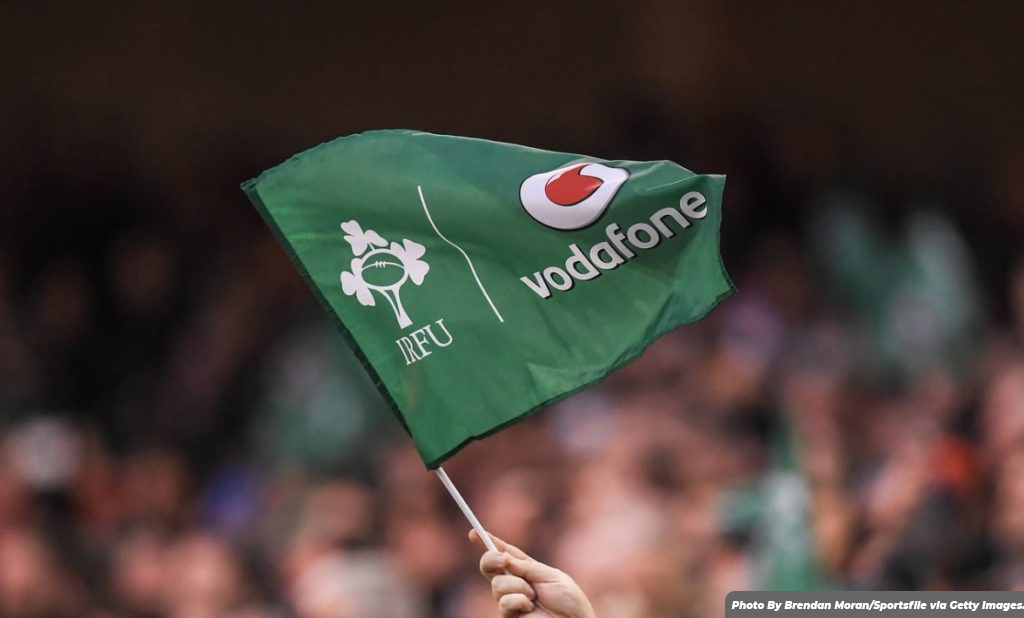
Head Coach Andy Farrell has named his Ireland Match Day Squad to face Scotland in Saturday’s final Rugby World Cup Pool B clash in Paris (Kick-off 9pm local time/8pm Irish time).
Following wins over Romania, Tonga and South Africa, Ireland conclude their Pool campaign against Gregor Townsend‘s side at Stade de France on Saturday night.
Peter O’Mahony is set to win his 100th cap for Ireland as he starts in the back row, with the 34-year-old in line to become just the 10th Irish player to reach the landmark.
Hugo Keenan, Mack Hansen and James Lowe start in an unchanged Ireland back three, with Garry Ringrose and Bundee Aki continuing in the midfield. Captain Johnny Sexton partners Jamison Gibson-Park once again in the half-backs.
Up front, Andrew Porter and Tadhg Furlong pack down either side of Dan Sheehan, with Tadhg Beirne and Iain Henderson named in the second row. O’Mahony, Josh van der Flier and Caelan Doris complete the starting XV.
The fit-again Jack Conan is in line for his first appearance of Rugby World Cup 2023 as he’s named on the replacements bench, joining forwards Ronan Kelleher, David Kilcoyne, Finlay Bealham and James Ryan, while Conor Murray, Jack Crowley and Stuart McCloskey provide the backline reinforcements.
Robbie Henshaw has been sidelined with a hamstring injury and a further assessment will be made early next week.
Saturday’s match is live on Virgin Media One in the Republic of Ireland and ITV1 in the United Kingdom.
Ireland Team & Replacements (v Scotland, Rugby World Cup, Pool B, Saturday October 7, Stade de France, 8pm Irish time)
15. Hugo Keenan (Leinster/UCD)(34)
14. Mack Hansen (Connacht/Corinthians)(19)
13. Garry Ringrose (Leinster/UCD)(55)
12. Bundee Aki (Connacht/Galwegians)(50)
11. James Lowe (Leinster)(24)
10. Johnny Sexton (Leinster/St Mary’s College) (captain) (116)
9. Jamison Gibson-Park (Leinster)(28)
1. Andrew Porter (Leinster/UCD)(57)
2. Dan Sheehan (Leinster/Lansdowne)(19)
3. Tadhg Furlong (Leinster/Clontarf)(70)
4. Tadhg Beirne (Munster/Lansdowne)(44)
5. Iain Henderson (Ulster/Academy)(77)
6. Peter O’Mahony (Munster/Cork Constitution)(99)
7. Josh van der Flier (Leinster/UCD)(55)
8. Caelan Doris (Leinster/St Mary’s College)(34)
Replacements:
16. Ronan Kelleher (Leinster/Lansdowne)(24)
17. David Kilcoyne (Munster/UL Bohemians)(54)
18. Finlay Bealham (Connacht/Buccaneers)(34)
19. James Ryan (Leinster/UCD)(58)
20. Jack Conan (Leinster/Old Belvedere)(39)
21. Conor Murray Munster/Garryowen)(110)
22. Jack Crowley (Munster/Cork Constitution)(8)
23. Stuart McCloskey (Ulster/Bangor)(14).
Images & Content from Irish Rugby & Images © Inpho Photography
6 Nations
Henshaw: Our Defence Was Good, But We Can Go Up Another Level

Entering match week four of the Rugby World Cup, Robbie Henshaw is feeling fully charged and refreshed after a ‘nice and chilled’ few days in Paris during the Ireland’s squad down time.
The picture has changed in Pool B since Ireland’s 13-10 win over reigning champions South Africa. The Springboks are top of the table on 15 points following their 49-18 defeat of Tonga, with Scotland, as expected, coming right back into contention with back-to-back bonus point victories.
Unbeaten Ireland still have their destiny very much in their own hands, sitting on 14 points with the Scots on 10, but it does mean that Saturday night’s Celtic derby at the Stade de France is effectively a shootout for the quarter-finals.
Ireland have dominated this fixture in recent seasons with eight straight wins, and have won twelve of the last 13 meetings. However, you write off a Scottish team at your peril, and Henshaw knows exactly the type of challenge they will pose.
“Every time we play Scotland we know they’re going to come for us,” he said, speaking at the team base in Tours. “Now we can see what it means to them and what they want to chase, and what we want to chase as well in terms of getting those four (pool) wins.
“They’re going to come and have a go like they always do, through Finn Russell and getting the ball to the width. They’ll have a plan and we’ll just need to make sure we’re rock solid and we attack it.”
Henshaw got another half-an-hour of game-time under his belt against South Africa, coming on during Garry Ringrose’s first half HIA and then as a permanent replacement just past the hour mark.
The Athlone man has played in four of Ireland’s last five matches, including starts against Italy and Samoa in the lead up to the World Cup. If he gets an opportunity to feature this weekend, he readily accepts that he has to make the most of it given the form of the other centres.
Bundee (Aki) has been brilliant. His body is in great shape, he is flying fit, as has Garry. The lads’ performances have been consistent.
“Bundee has been flying in terms of getting tries. He’s been letting us know he’s near the top of the try scorers’ list (with four tries so far), which we’ve been having a laugh about!
“They’ve been outstanding. Whenever I get a chance to come in, it’s making sure I put my best foot forward and whenever I come off the bench, put in a good performance.”
As well as Henshaw, Ulster’s Stuart McCloskey, who is in buoyant mood after the birth of his second son, is pressing to be involved and make his World Cup debut, as is the versatile Jimmy O’Brien, who played at centre against the ‘Boks last November.
Ireland’s strength in depth in midfield – and clean bill of health – is a huge asset at this stage of the tournament, especially if the starting pair for Saturday continue to produce the sort of form that Aki and Ringrose have across the opening three rounds.
“There’s always in the past – Six Nations, Novembers – there’s always been one of us (centres) in or out due to injury or whatever,” acknowledged Henshaw, who scored his eighth Test try against Scotland in March 2021.
“Hopefully we can keep us all fit. But the quality we have, we’ve great strength in depth in those positions, even the likes of ‘Earlsie’ (Keith Earls) being able to come in at 13 and Jimmy, the depth we have here is key for playing in a World Cup because anything can happen.”

The 30-year-old Leinster star admitted it was ‘all hands on deck’ when he was initially sprung from the bench against South Africa. It was his chop tackle on Pieter-Steph du Toit that allowed James Lowe to get in for a turnover at a crucial stage.
Keeping Jacques Nienaber’s men to just one try – and eight points in all – was a huge factor in the overall outcome. That was also the case when Ireland beat Scotland in the 2022 and 2023 Six Nations, winning 26-5 in Dublin and 22-7 in Edinburgh respectively.
As things stand, Ireland have the third best defensive record across the pools, conceding 32 points so far compared to host nation France’s 25 and England’s 22. Maintaining those standards will be vital against Scotland in such a high-stakes encounter.
“We had a good look at what we did against South Africa. I think our defence, we showed some great pictures in defence but we know we can go (up) another level,” insisted Henshaw.
“Definitely in attack, we took some steps forward but we left some opportunities out there as well. Looking at everything from our set-piece lineout, how can we get better there? In the first few moments we missed a few lineouts and that let South Africa off the hook a bit.
“Definitely we’ll break down bits like that and make sure we learn from it and we grow.”
Images & Content from Irish Rugby & Images © Inpho Photography
6 Nations
Sexton ‘Very Proud’ Of Record, But Win Was More Important

Head coach Andy Farrell said it was ‘so fitting’ that Jonathan Sexton broke Ronan O’Gara’s record with a memorable try under the posts to become Ireland’s all-time top points scorer.
O’Gara (1083 points) leapfrogged David Humphreys (560) at the top of the scoring charts back in February 2006, and now the mantle has passed to another talismanic number 10. Sexton’s try and 11 points from the tee against Tonga took his career haul for Ireland to 1090.
Adding in his 2013 try for the British & Irish Lions against Australia, he has moved above Welsh legend Neil Jenkins into fourth place on the list of highest scorers in international rugby history.
Sexton claimed the Irish record in style with a cleverly-worked 37th-minute score that secured Ireland’s second bonus point of this Rugby World Cup. The rush of his team-mates to congratulate and engulf him behind the posts spoke volumes.
“I was just happy to score the try,” admitted the Ireland captain, modest as ever. “I think one of the lads said it to me (about breaking the record) under the posts. I actually thought I might have got it on the kick before.
Look, it’s something when you retire you can look back on and be very proud of. I think my little boy (Luca) will be over the moon. He was talking about it during the week.
“It probably means more to him! He’ll chase it down now, and so will the other 10s. It’s there to be broken now and I’m sure some young guys will be eyeing it up.
“I’m very proud to do it, but tonight it was more important getting the win and moving on to what is such a massive game (against South Africa) this coming week.”
Sexton has started France 2023 in impressive form despite his lack of recent game-time. He has racked up three tries and 40 points in all across the first two rounds, with only England’s George Ford (41) ahead of him.
The St. Mary’s College clubman has already topped his tallies from previous World Cups – 21 points in 2011, 31 points in 2015, and 26 points in 2019 – but is acutely aware that scoring opportunities will be much more difficult to come by against the Springboks.
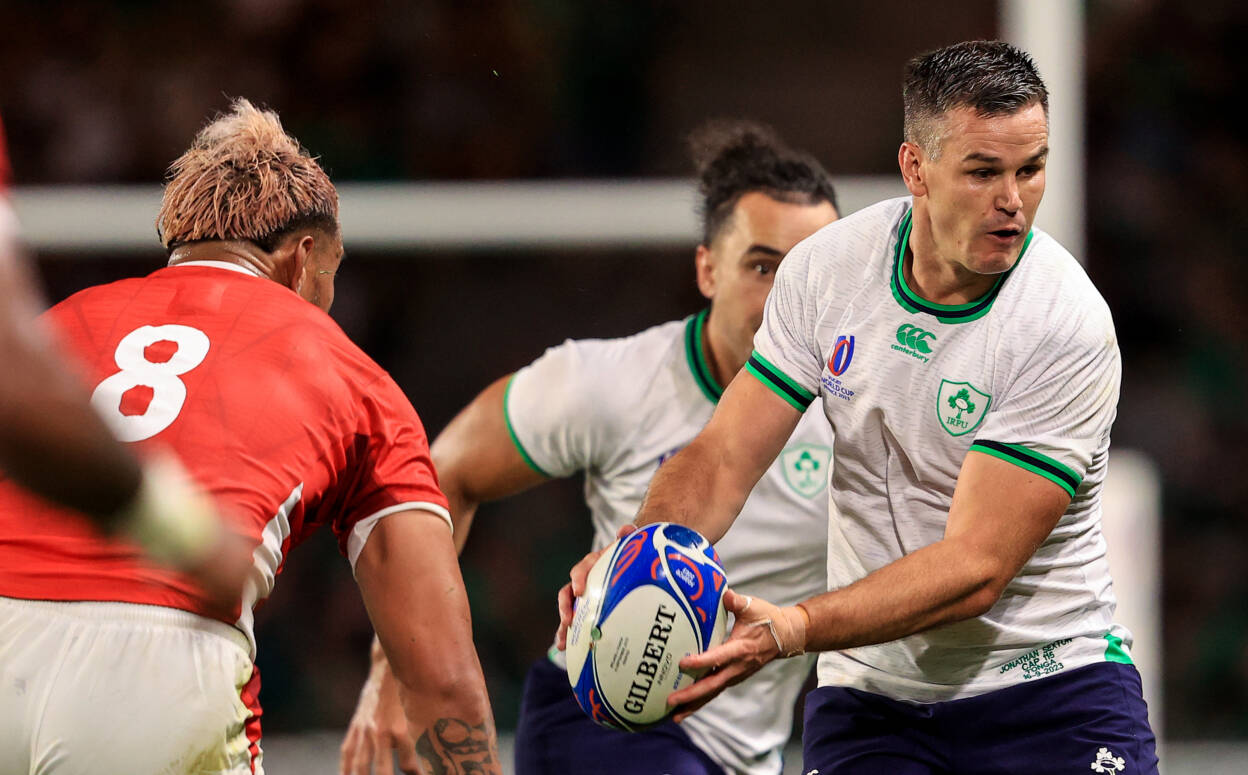
Asked about the minutes he had gotten under his belt and the drive to get back to peak form, he admitted: “The proof will be next Saturday if I’m in good form. You’ve got to go do it in the games. There’s no point saying you’re feeling good or whatever.
“I just take it day by day, make sure I recover well, turn up to training Monday, Tuesday, and try and help put the plan in place to take on South Africa.
“They’ve hit a great vein of form and it’s going to be a huge challenge for us, but one that we are really excited about. Hopefully we’ll be ready for it.”
The fine-tuning of the Irish lineout had the desired effect with 21 wins and just two losses on their own throw. They also stole two of their opponents’ throws, while the scrum was also rock solid against a mammoth Tongan front row.
The pack put in a big collective shift, particularly Tadhg Beirne and Josh van der Flier, who both played the full 80 minutes, and Peter O’Mahony (75) and Tadhg Furlong (71) were not far behind. Having been replaced, tighthead Furlong had to return to the pitch due to Finlay Bealham’s HIA.

Sexton played the first half in Nantes before Ross Byrne came on at out-half for his first World Cup appearance. The Ireland skipper praised the forwards for ensuring that ‘the lineout was excellent, the scrum as well’.
“We got a lot of territory and field position from the set piece. The forwards laid the platform and we got a couple of nice tries in both halves off first or second phase. Very pleased with that.”
It has been a real positive to see the Irish attack put away a good chunk of their chances, whether it is through Mack Hansen’s brilliant sidestep and burst of pace, or that lung-busting support run from Beirne that saw him score right at the death against Romania.
Bundee Aki (4 tries), Beirne and Sexton (3 each) have been regular try scorers, with the latter saying: “We’ve trained incredibly hard all summer, so we’re fit enough and able to get ourselves into positions to score tries and to put the opposition under pressure.
“We’ve done that well at times over the first two weeks. There was plenty of stuff that we’ll look back on early in the game where we’re going to need to be more accurate and clinical next week.”

Meanwhile, Farrell (pictured above with Tonga’s Chris Boyd) was pleased with how his side turned their pressure into points on a humid night. They went past the half-century mark with four tries during the closing 22 minutes.
They also got four more World Cup debutants (Byrne, Bealham, Ryan Baird and Craig Casey) on the pitch, and Dave Kilcoyne and Robbie Henshaw both returned from injury.
Farrell says they are ‘building nicely’ on the back of their eight-try display in Nantes, benefitting from ‘getting a little bit of continuity, getting more game-time, getting the job done and getting people off at the right time’.
He was delighted to see Sexton add another milestone achievement to his collection. Apart from his scoring prowess, he says the thing that stands out about his captain is ‘how he makes people feel and how he leads the team, and he’s one of the best in the world at that’.
Speaking about the try which saw the Dubliner break O’Gara’s longstanding record, the Wigan man commented: “He’d nine points and equalled the record before he scored the try, hadn’t he? You just knew when we got held up, and we were set to play that play. It’s something that we’d obviously practised during the week.
“He knows which ones to follow! He followed Conor (Murray) really well, and it’s so fitting that he broke the record with a try like that.
“The record’s fantastic but he’d say that’s his job. But it takes some doing. To us, as a leader and as a player, he’s a lot more than a points-scoring machine.
“How he prepares his team and gets them up for absolutely every game selflessly is more important to, I would think, him and certainly to us.”
Images & Content from Irish Rugby & Images © Inpho Photography


